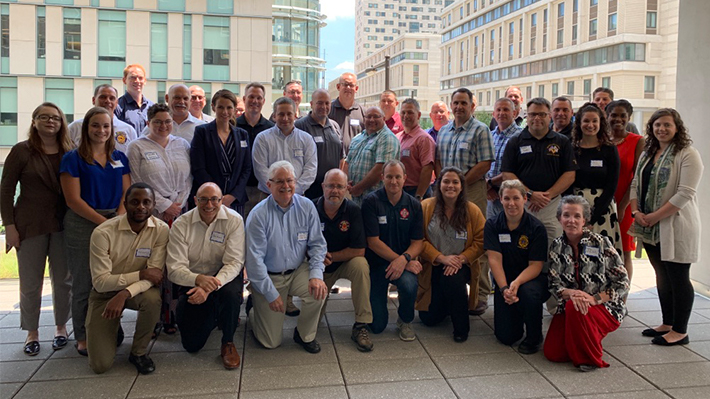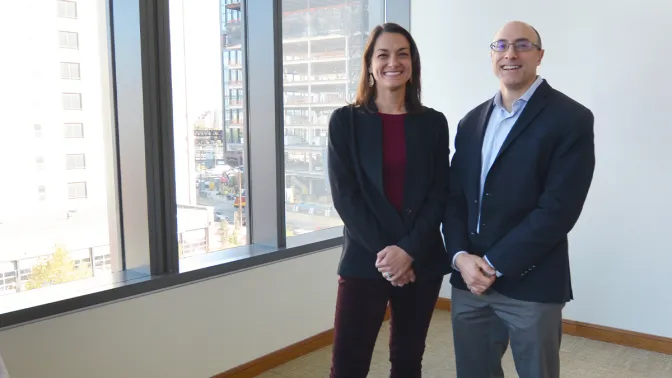
Examining Work Environments and Safety for First Responders Amid a Pandemic
The mental health of first responders and firefighters working amid the coronavirus pandemic is the focus of a new research study by Christian Resick, associate professor of management in LeBow, and Jennifer Taylor, Arthur L. and Joanne B. Frank Professor of Environmental and Occupational Health at the Dornsife School of Public Health. Taylor is also director of the Center for Firefighter Injury Research and Safety Trends (FIRST) at Dornsife, where Resick is an affiliate faculty member.
The project, called the COVID-19 RAPID Mental Health Assessment and funded through Drexel’s Rapid Response Research & Development Fund, will also examine the steps taken by fire service leadership to prepare their members to face these challenges.
“This funding allows us a unique opportunity, in the middle of this pandemic, to look at leadership factors and trace their effects over the next couple of months while these brave individuals are serving the public and their communities,” Resick said.
The RAPID Assessment builds on two earlier projects by Resick and Taylor that examine the climate for safety — that is, the policies, practices and procedures enacted by leadership to support and encourage the adoption of safe work behaviors — for both career and volunteer firefighters. The two projects — the Fire Service Organizational Culture of Safety Survey (FOCUS) and Stress and Violence in Fire-based EMS Responders (SAVER) — have helped fire departments address line-of-duty injuries and deaths and longer-term consequences of fire-service work.
The RAPID assessment will be administered to firefighters, paramedics and EMTs at fire departments in Philadelphia, Dallas and San Diego, as well as 20 select departments from around the country, all of which are already using the team’s previous surveys. The results from RAPID will be combined with baseline assessments taken prior to the pandemic outbreak.
“It’s a really exciting project in terms of what we have in our research kit, and we’ve added some new assessments of leadership, climate and teamwork,” Resick said. “We’re looking at how each station’s leadership is developing strategies to create psychological safety within the fire station and how that works with the safety climate that we already have baseline assessments of.”
Through the Drexel-funded project, Resick and Taylor are examining to what extent climate, leadership and support for safety serve to mitigate burnout, emotional exhaustion, depression and other after-effects of a high-stress work environment.
“Leaders need to create an environment where people know that it’s okay to step back when they need a moment to process and clear their heads before responding to someone else
“Our instrument looks at some of the factors associated with senior leadership’s commitment to safety, and the direct, station-level support for safety practices,” Resick said. “In LeBow’s management department, where our focus is on leadership and teamwork, this is a direct translation of the work I’ve been doing for decades.”
The assessment also looks at how leadership helps employees stay engaged; Resick and Taylor note that an individual who is engaged in their work will behave more safely and provide better service.
Taylor points out that the RAPID assessment also highlights the interdisciplinary nature of research at Drexel. “I’m an epidemiologist; Christian’s an industrial/organizational psychologist, and we’re uniting those skills to achieve safety for first responders,” she said. “It’s good to know that there’s a resource close by that takes the FIRST Center’s research to a higher level.”



